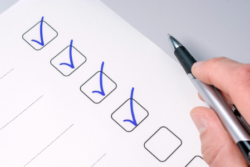Reasons to Refinance
There are a few reasons why people consider refinancing their homes. Understanding the reasons for wanting to do so can help determine if refinancing is right for you. Every household has a different situation and some scenarios dictate the right time to refinance and when it’s smarter to wait. The benefits of refinancing may include lowering your monthly payments, shortening your loan term, or to borrow from a portion of your available home equity for things like home improvements or reducing other debt.

Refinancing to a fixed rate
– As a general rule of thumb, refinancing to a fixed rate loan would make the most sense when the loan rates are lower than your current rate. However, no one can really predict whether rates will go up or down. So it’s beneficial to be prepared to refinance when the desired rate is available.
- The main benefit of a fixed rate loan is stability. It will not fluctuate, and the principal and interest rate will stay the same through the entirety of the loan. Such stability can provide peace of mind and make it easier to set a monthly budget.
- Fixed rate loans do tend to have slightly higher interest rates than adjustable rate mortgages (ARM). Which may be a down side upfront but typically not in the long run.
Refinancing to lower your payments
– Lowering your monthly mortgage payment by refinancing to a lower rate loan can help relieve some pressure from your budget.
- Whenever you refinance you will be paying closing costs and will most likely enter into a new 30 year mortgage. After owning your house and making scheduled payments for a number of years, starting over with another 30 year term could mean paying more in interest in the long run.
- Consider the shortest loan term possible to save money on interest over the life of the loan.
Is a cash-out refinance right for you?
– You have a couple of options when it comes to borrowing against the equity you already have in your home. Whether you want to receive cash back or pay off a mortgage that wasn’t used to buy your home, consider the following when looking at a cash out refi:
– Cash out refinance:
- The maximum loan to value ratio for a cash out loan is 80%. Depending on the current market value of your home and the desired loan amount, you will have to have enough equity in your home to even consider a cash out option.
- After paying off the existing lien(s), you would only have one mortgage.
- You receive a lump sum when you close your refinance (after paying off current mortgage(s), and up to 80% loan to value)
- Typically offers a lower interest rate than a home equity line of credit would
By: Stephen Eaton specialist at boxhomeloans


